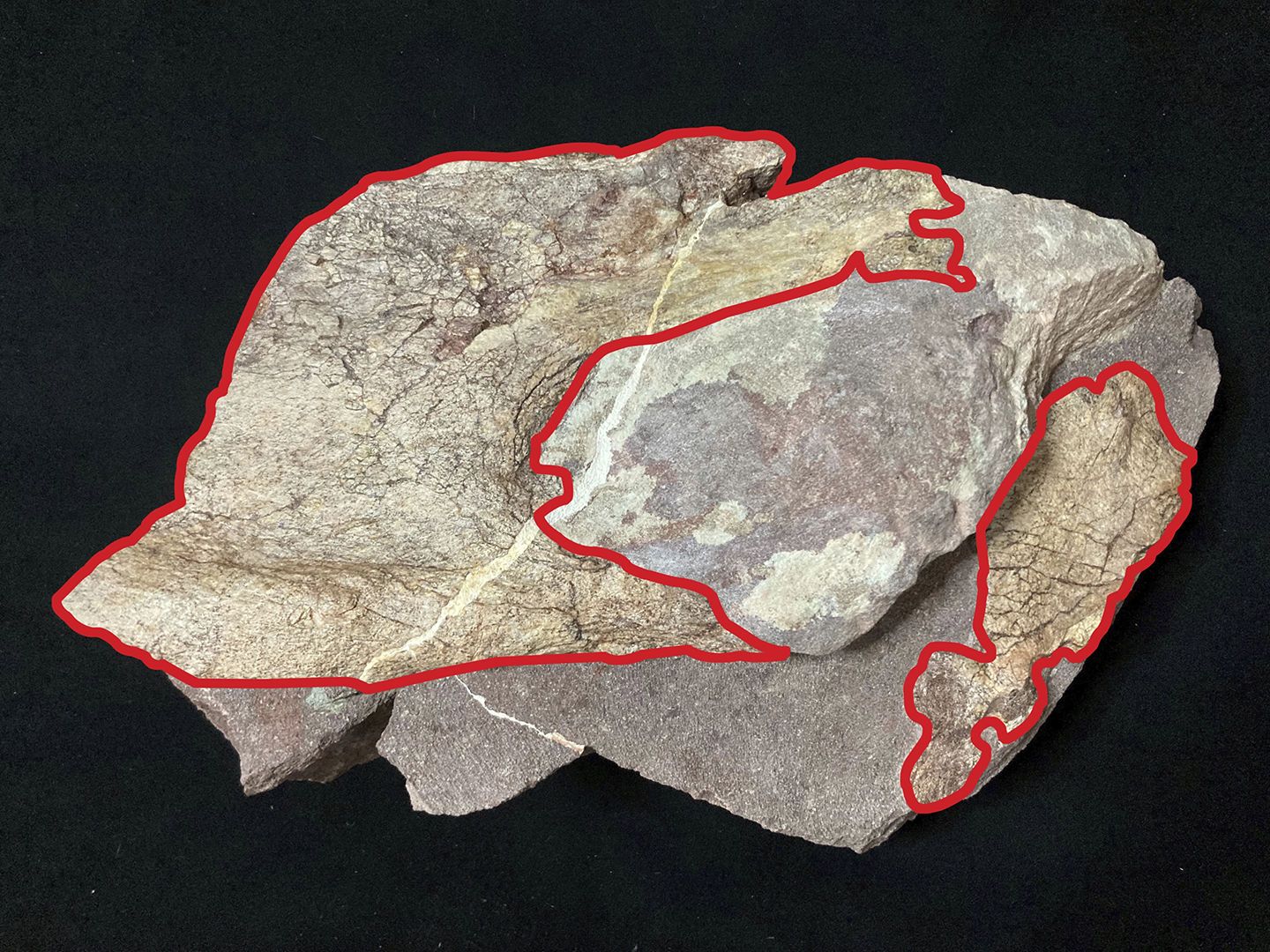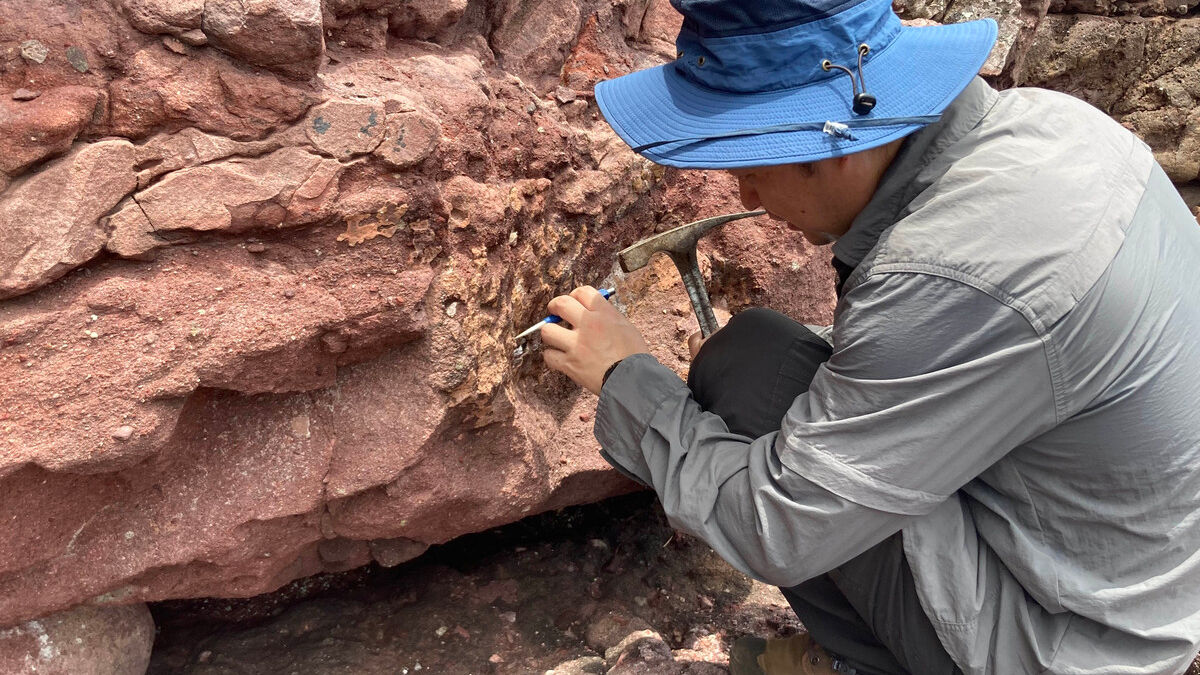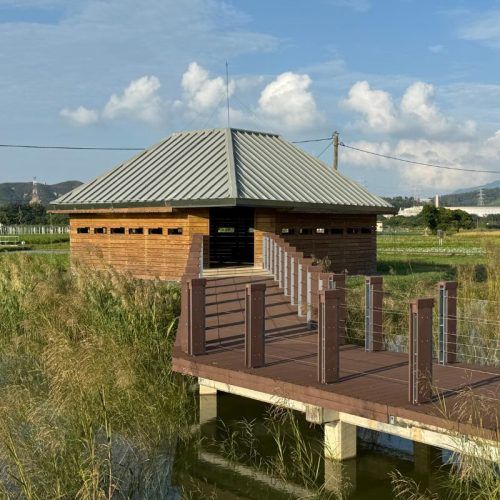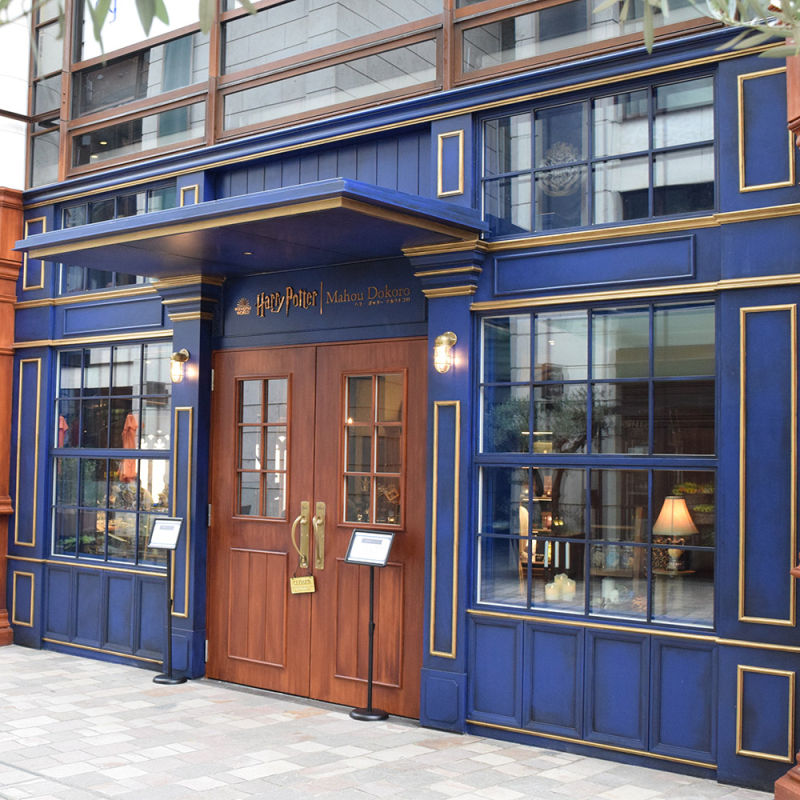The Development Bureau (DEVB) announced the discovery of a dinosaur bone fossil in Hong Kong on Wednesday. This is the first time a dinosaur fossil has been ever found in the city, marking a historic discovery.
The fossil was unearthed at Port Island, located within the Hong Kong UNESCO Global Geopark. Experts have yet to identify the exact species and age of the fossil. However, based on a preliminary osteohistological analysis, it is likely a larger dinosaur from the Cretaceous period around 145 million to 66 million years ago. They speculate that the dinosaur was buried by sand and gravel after death, before getting washed to the surface due to a large flood and then re-buried at the discovery site.
“The discovery is of great significance and provides new evidence for research on palaeoecology in Hong Kong,” says Bernadette Linn Hon-ho, Secretary for Development.
A months-long process of research and collaboration

The Agriculture, Fisheries, and Conservation Department (AFCD) first notified the Antiquities and Monuments Office (AMO) of DEVB about the fossil in March. The AFCD suspected the sedimentary rock on Port Island would contain vertebrate fossils.
Afterwards, experts from the Institute of Vertebrate Paleontology and Paleoanthropology (IVPP) of the Chinese Academy of Sciences conducted field investigations from June to August. This involved studying fossil specimens, formulating management strategies, and discussing future steps.
Following the discovery of the dinosaur bone fossil, authorities have suspended public access to Port Island. This is to allow experts to conduct further research and excavations. Through this and preparing the fossils, the authorities hope to uncover the story of the dinosaurs in Hong Kong. Perhaps, it will also lead to more exciting discoveries.
Where to see the first dinosaur bone fossil discovered in Hong Kong
From October 25 onwards, the public can view the dinosaur bone fossil at the Hong Kong Heritage Discovery Centre in Tsim Sha Tsui. The AMO will also host talks at the centre to foster public interest in palaeontology. Experts from the IVPP will share their knowledge of dinosaurs and research with attendees during the talk.
(Images: Antiquities and Monuments Office)












